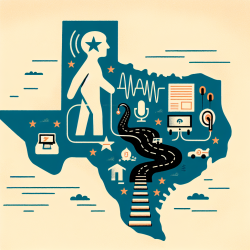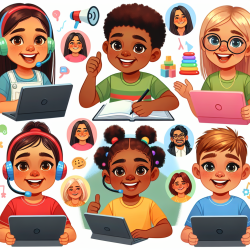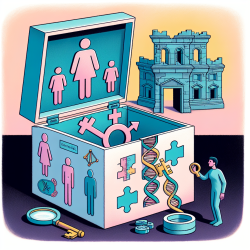As practitioners dedicated to improving the lives of young people, it's essential to stay informed about innovative treatment methods that can enhance our therapeutic toolbox. A recent study titled Online Obsessive-Compulsive Disorder Treatment: Preliminary Results of the “OCD? Not Me!” Self-Guided Internet-Based Cognitive Behavioral Therapy Program for Young People offers valuable insights into the effectiveness of self-guided Internet-based Cognitive Behavioral Therapy (iCBT) for young people with OCD. This blog will explore the key findings of this study and how practitioners can implement these outcomes to improve their practice.
Study Overview
The study aimed to evaluate the effectiveness of the “OCD? Not Me!” program, an eight-stage, completely self-guided iCBT treatment for young people aged 12-18 years. This program is based on exposure and response prevention (ERP) and is designed to reduce OCD-related psychopathology. The preliminary results of this open trial are promising, showing significant reductions in OCD symptoms and severity among participants.
Key Findings
- Significant Reduction in Symptoms: Participants showed significant reductions in OCD symptoms (P<.001) and severity (P<.001) between pre- and posttest.
- Moderate to Large Effect Sizes: The study reported a moderate effect size (d=.64) for the reduction in OCD symptoms and a large effect size (d=.89) for the reduction in OCD severity.
- Gradual Improvement Over Time: The results indicated a gradual decrease in OCD symptoms and severity over the course of the program.
Implications for Practitioners
The findings from this study suggest that fully automated iCBT programs like “OCD? Not Me!” can be a valuable tool for increasing access to effective treatment for young people with OCD. Here are some ways practitioners can implement these outcomes:
- Integrate iCBT Programs: Consider incorporating self-guided iCBT programs into your practice as a complementary treatment option for young clients with OCD.
- Promote Accessibility: Use iCBT programs to reach clients who may have barriers to accessing traditional face-to-face therapy, such as geographical limitations or concerns about stigma.
- Monitor Progress: Regularly assess and monitor the progress of clients using iCBT programs to ensure they are benefiting from the treatment and to make any necessary adjustments.
- Encourage Self-Help: Empower young clients and their families by providing them with resources and tools to manage OCD symptoms independently.
Encouraging Further Research
While the preliminary results are encouraging, it is essential to conduct further research to replicate these findings and explore the long-term feasibility of self-guided iCBT programs. Practitioners can contribute to this effort by participating in research studies, sharing their experiences, and advocating for evidence-based practices in their communities.
To read the original research paper, please follow this link: Online Obsessive-Compulsive Disorder Treatment: Preliminary Results of the “OCD? Not Me!” Self-Guided Internet-Based Cognitive Behavioral Therapy Program for Young People.










